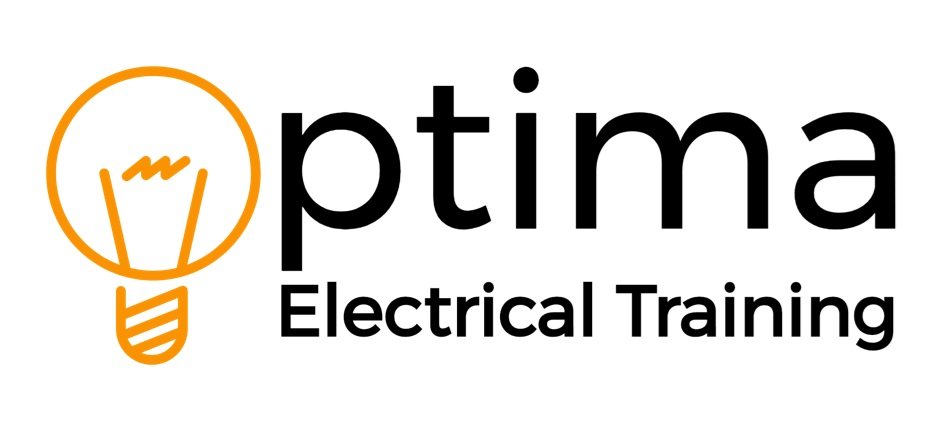Are Electrician Jobs Safe from Robots? The Future of Electricians in the Age of AI
The rapid evolution of technology over recent years has sparked an important conversation across nearly every industry: Will Artificial Intelligence and robotics eventually replace human jobs?
With AI now capable of analysing data, performing complex calculations, and even assisting in construction processes, many tradespeople, especially electricians, are wondering what the future holds. Are robots going to take over hands-on electrical work, or will human electricians remain an essential part of the workforce?
At OPTIMA Electrical Training, we take these questions seriously. As a provider committed to preparing learners for long-term careers, it is vital that we understand how emerging technologies might shape the industry. Although automation is undoubtedly changing the landscape of construction, the idea of robots completely replacing electricians is far more complicated than it may seem.
The Rise of Automation and Its Impact on Traditional Trades
Automation has made significant progress in sectors where repetitive or highly structured tasks dominate. A study by McKinsey and Company estimates that around 30 percent of the tasks within 60 percent of today’s occupations could, in theory, be automated. This statistic often sparks fear, but it is important to understand what automation truly means in context.
We have already seen widespread use of self-service kiosks in retail and hospitality, replacing human staff in simple and repetitive roles. In construction, companies have begun developing machines that can handle certain tasks at impressive speed. Construction Robotics, for example, introduced SAM, the Semi Automated Mason, which is capable of laying thousands of bricks per day, far outpacing even the most experienced bricklayer. Australia has seen similar developments, with large-scale machines laying hundreds of bricks per hour.
These innovations demonstrate the potential of machines to support or accelerate certain construction processes. Yet despite their capabilities, these machines highlight a fundamental truth: robots excel at repetition, but struggle with the complexities and unpredictability of real construction environments. They require extensive setup, face difficulty with non-standard features such as corners and bespoke designs, and still need human workers to oversee and complete tasks. Even in highly engineered environments, robotics cannot replicate the adaptability, judgment, and problem-solving abilities of skilled tradespeople.
Modular Homes and the Changing Nature of Electrical Work
Another development shaping the future of construction is the rising popularity of prefabricated or modular homes. These factory-built structures offer homeowners faster build times, reduced labour costs, and a more controlled manufacturing process. For electricians, modular construction does not signal the end of hands-on work, rather, it represents a shift in when and where that work is performed.
Many electrical components in modular homes are installed off-site in a controlled factory environment. Once the structure is delivered, electricians are then responsible for testing, certifying, and connecting the electrical system to the main supply. This requires a high level of skill, attention to detail, and strict adherence to current wiring regulations.
As more construction moves off-site, new opportunities emerge for electricians to work within factory environments, ensuring that electrical systems built into modular units are safe, compliant, and fully operational before transportation. This shift highlights a major point: as construction methods evolve, the role of the electrician evolves with them, not toward redundancy, but toward new responsibilities and areas of expertise.
Why Robots Will Not Replace Electricians Anytime Soon
Despite advances in AI and robotics, the electrical industry is uniquely resistant to full automation. Electrical work involves variables that machines cannot navigate, including diagnosing faults in old wiring, adapting to unique building layouts, and applying critical safety judgment in live environments.
Electricians frequently work in tight spaces, around obstacles, or inside buildings that have been altered over many years. They must interpret conditions, understand risks, and make immediate decisions based on training and real-world experience. These elements are extremely difficult for machines to replicate. Robots are not capable of recognising hazards with human intuition, nor can they reliably perform intricate tasks requiring fine motor skills.
Even if AI eventually assists with diagnostics or automated tools handle specific repetitive tasks, a qualified electrician will still need to oversee, interpret, and apply the findings correctly. Human decision-making remains the foundation of safe electrical work.
A Future Built on Collaboration Between Electricians and Technology
Rather than imagining a future where electricians are replaced, it is more realistic to expect a partnership between skilled professionals and advanced tools. AI-powered software may help analyse energy usage patterns, identify irregularities in electrical systems, or support compliance checks. Robotics may take on heavy or repetitive tasks such as cable pulling. Smart diagnostic tools may catch issues before they become major faults.
In every scenario, the role of the electrician becomes even more significant. Electricians will be the ones operating new technologies, verifying accuracy, applying regulations, and delivering the final approval that ensures systems are safe and reliable.
Technology, in this context, becomes a tool that enhances productivity, not a replacement for human expertise.
Adapting to Change, How Electricians Can Stay Future-Proof
As the trade evolves, continuous learning becomes essential. Electricians who embrace new technologies and incorporate them into their skillset will be well-prepared for long-term success. Fields such as smart home systems, renewable energy installations, battery storage systems, and electric vehicle charging infrastructure are expanding quickly. These are areas where human expertise remains essential and where demand continues to rise.
Maintaining a strong understanding of electrical regulations, sharpening diagnostic abilities, and developing familiarity with AI-supported tools will ensure that modern electricians remain at the forefront of the industry.
The Electrical Trade Remains Strong, And Opportunities Are Growing
Although AI will influence the electrical industry, it will not eliminate the need for skilled electricians. In fact, the industry is expanding as modern technologies become integrated into homes, commercial properties, and large-scale infrastructure. Electricians bring creativity, adaptability, and sound judgment to environments that machines cannot fully navigate.
The future of electrical work is not one dominated by robots, but one where human electricians and advanced technologies work together to achieve safer, more efficient, and more innovative outcomes. Those who continue to learn, embrace new tools, and invest in professional development will thrive in this modern landscape.
OPTIMA Electrical Training, Preparing You for the Next Generation of Electrical Work
At OPTIMA, we recognise the rapid changes taking place across the electrical sector. Our training programmes are designed not only to prepare learners for today’s roles, but to equip them with the resilience, confidence, and forward-thinking skills required for the future. Whether you are beginning your electrical journey, retraining, or advancing into modern specialisms such as renewables or smart systems, our courses provide the foundation needed for long-term success.
We are committed to supporting learners at every stage, ensuring they gain the practical ability, regulatory knowledge, and adaptability required to excel in an evolving industry.
To prepare for the future of electrical work, contact OPTIMA Electrical Training today and explore our full range of courses and training pathways.
Thinking of Becoming a Qualified Electrician?
At Optima, we provide comprehensive electrical training courses that equip you with the skills, qualifications, and confidence to work safely and legally in this vital industry. Whether you’re just starting out or looking to expand your qualifications, our accredited training programmes will give you the knowledge, confidence, and credentials to meet new building standards and market demand.
By enrolling with OPTIMA, you’ll:
✅ Gain industry-recognised qualifications trusted by employers. ✅ Hands-on practical training
✅ Train in a supportive, career-focused environment with real progression routes.✅ Expert instructors with real-world experience
✅ Access our ‘Pathway to Placement’ support to help you move from the classroom into paid work.
✅ Be part of a trade that’s essential, future-proof, and in constant demand.
Contact us today to embark on your training journey.
Contact us: Request Information
Email: info@optima-ect.com
Freephone +44 800 0371572


